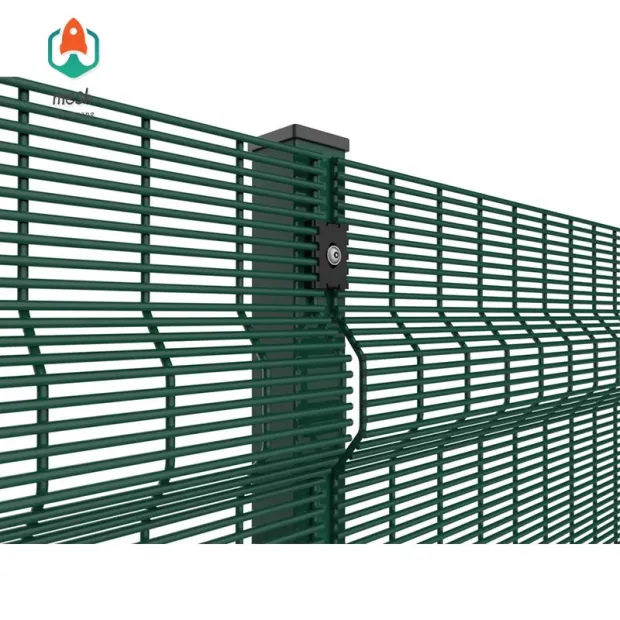A 358 anti-climbing fence is a high-security welded mesh fence designed to prevent climbing and intrusion. The name “358” refers to its mesh size of 3 inches × 0.5 inches (76.2 mm × 12.7 mm) made from 8-gauge (4 mm) wire. The small openings make it extremely difficult for fingers or tools to gain a grip, making it a top choice for areas requiring maximum security such as prisons, military facilities, and critical infrastructure.
Typical 358 anti-climbing fence specifications include:
Mesh Size: 76.2 mm × 12.7 mm (3" × 0.5")
Wire Diameter: 4 mm (8-gauge)
Height Options: 2 m to 5.2 m, often with additional security toppings like barbed wire or razor wire
Material: Low-carbon steel or galvanized steel
Surface Treatment: Hot-dip galvanizing, powder coating, or both for corrosion resistance
Panel Width: Commonly 2.5 m to 3 m
These tight tolerances and robust materials ensure the fence can withstand physical attacks and environmental wear.

Maximum Security: Small apertures prevent climbing and cutting.
High Strength: Heavy-gauge steel resists bending and vandalism.
Corrosion Resistance: Protective coatings extend lifespan.
Low Maintenance: Requires minimal upkeep after installation.
Clear Visibility: Security personnel can see through the mesh without obstruction.
While both are made from welded steel wires, they differ in purpose and security level:
358 Anti-Climbing Fence: Smaller openings, heavier wire, designed for maximum security.
Standard Welded Mesh Fence: Larger openings, lighter wire, suitable for general property boundaries.
In short, a 358 fence is a specialized form of welded mesh, optimized for high-risk areas where intrusion prevention is critical.
Site Preparation: Clear and level the installation area.
Mark Post Positions: Ensure even spacing to match panel width.
Install Posts: Fix posts into concrete foundations for stability.
Attach Panels: Secure panels to posts using anti-tamper clips or bolts.
Add Security Toppings: Install barbed wire, razor wire, or electric fencing if required.
Professional installation is recommended to ensure maximum strength and compliance with security standards.
Prisons and Correctional Facilities
Military Bases
Airports and Seaports
Government Buildings
Industrial Sites and Warehouses
Power Plants and Water Treatment Facilities
The cost varies based on height, coating type, and additional security features. On average:
Basic galvanized panels: $50 – $80 per meter
Powder-coated panels: $80 – $120 per meter
With security toppings: $100 – $150 per meter
While more expensive than standard fencing, the enhanced security and durability make it a cost-effective choice for high-security applications.
Comments
Please Join Us to post.
0